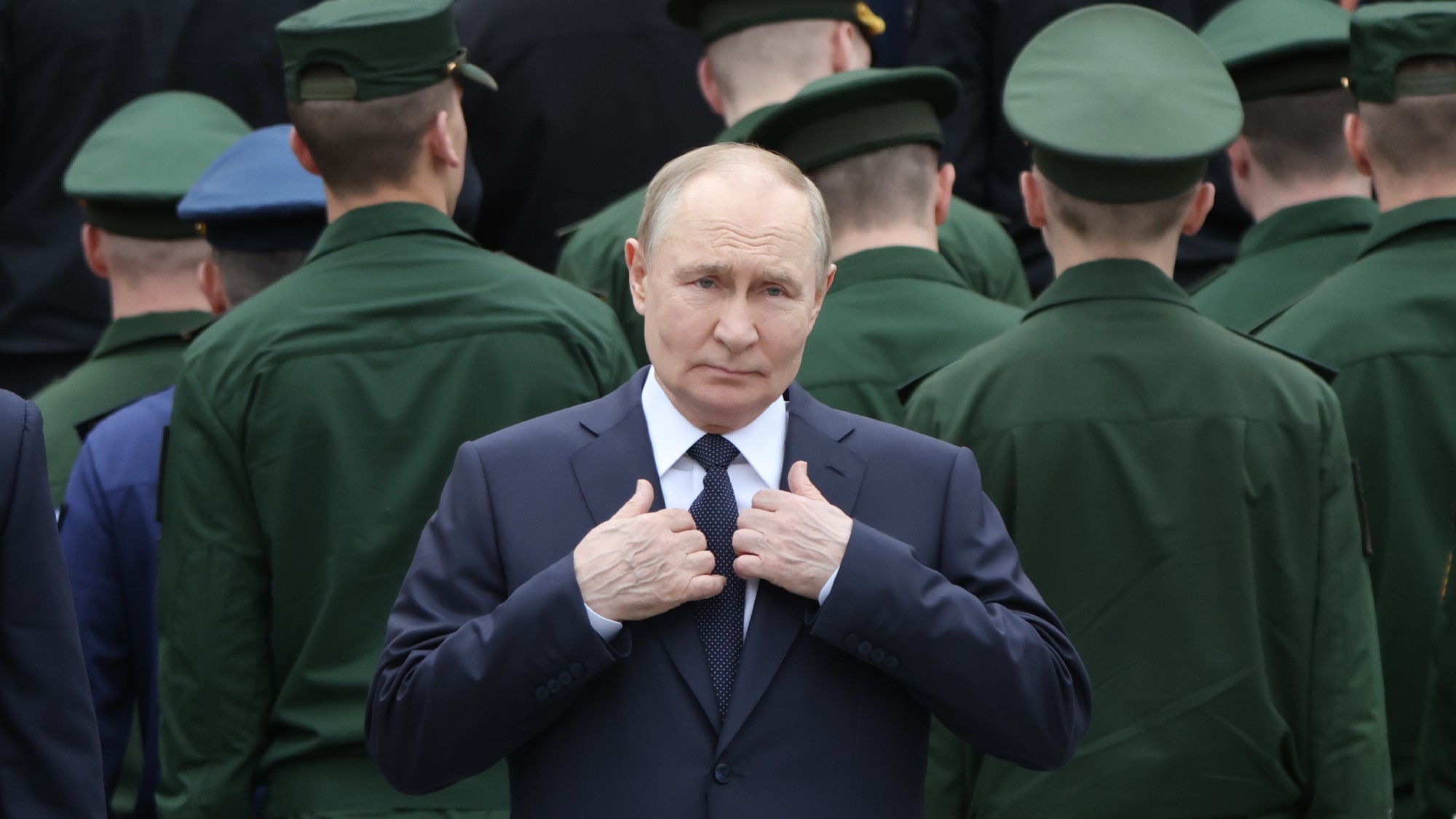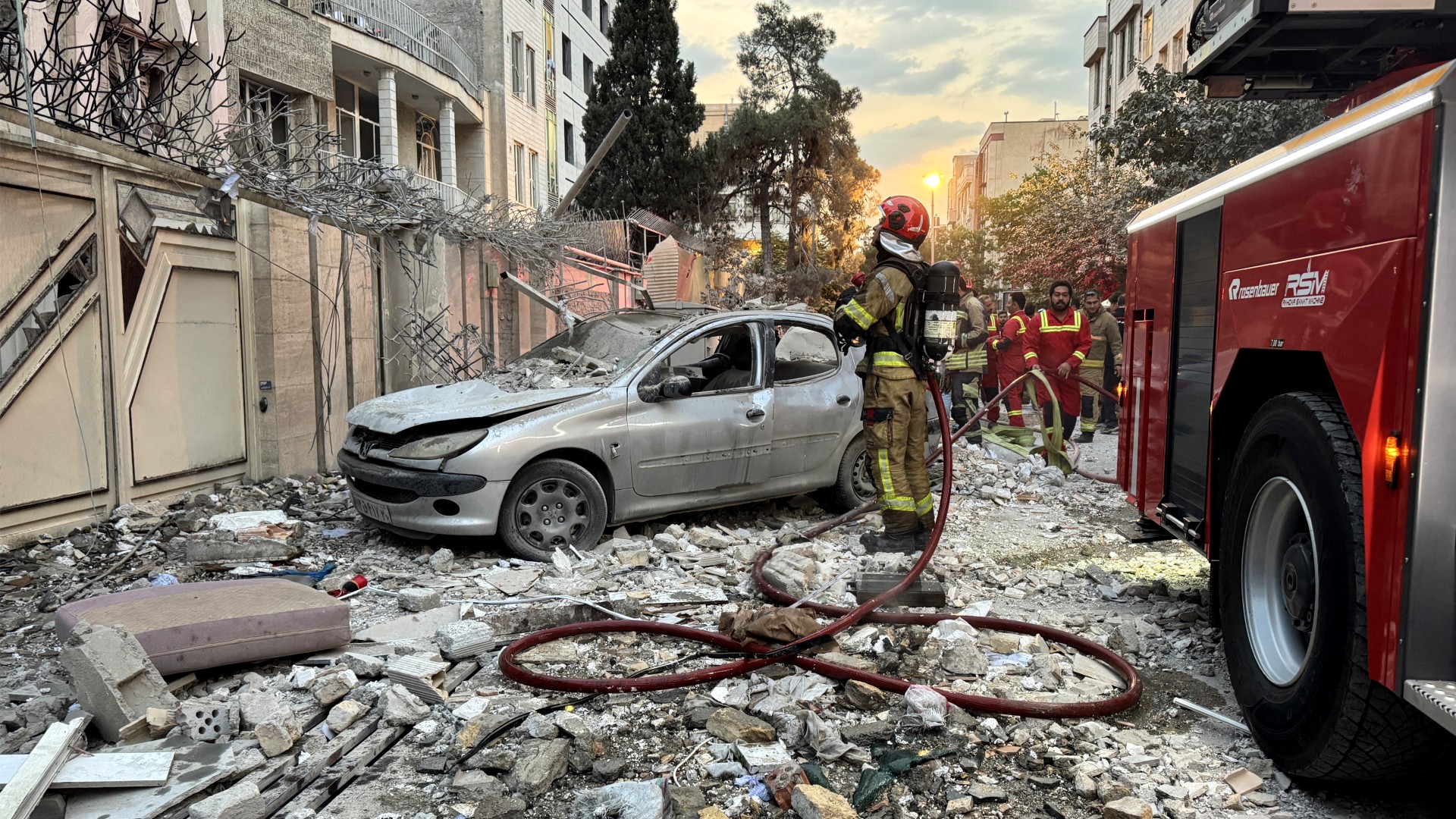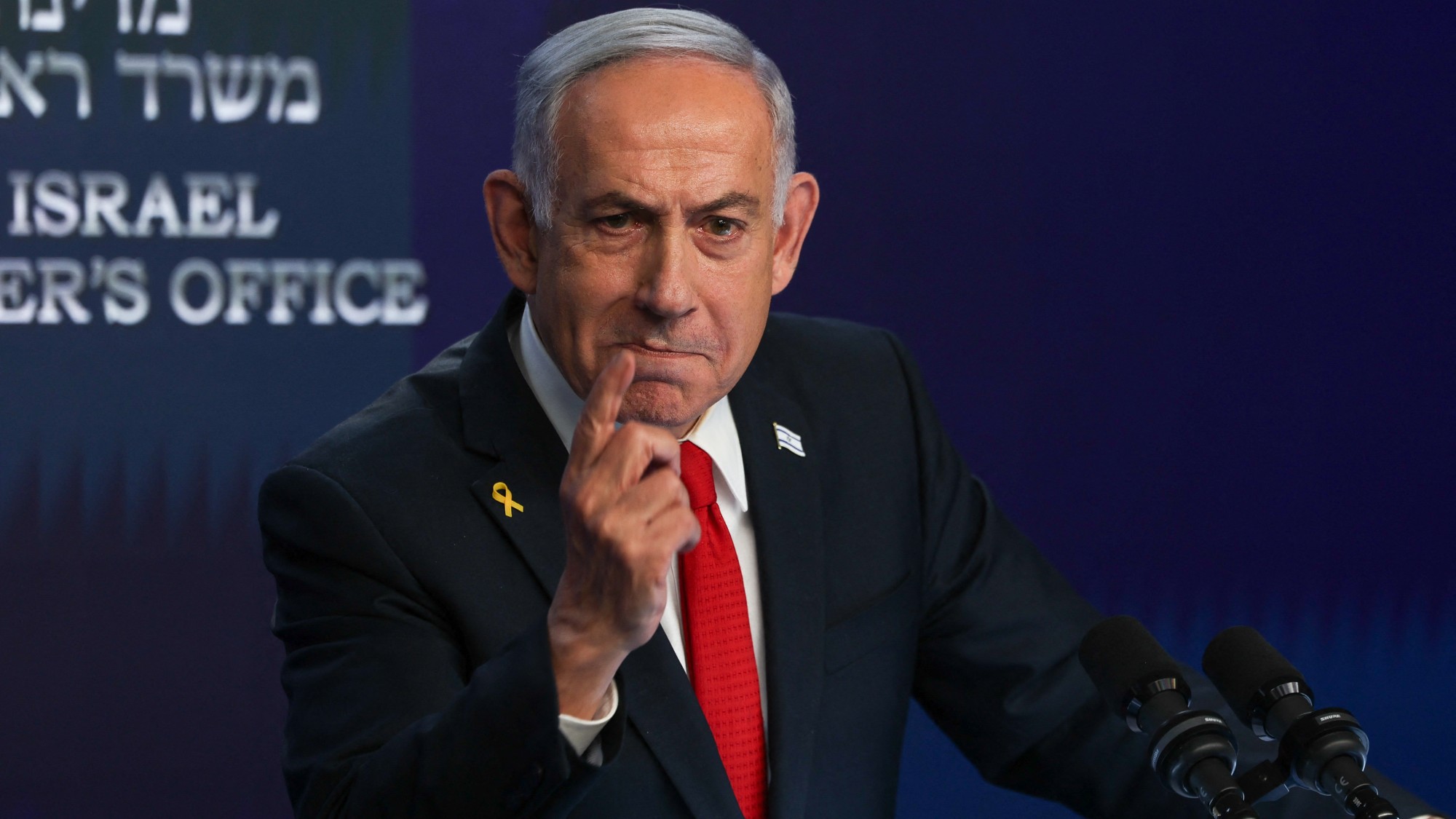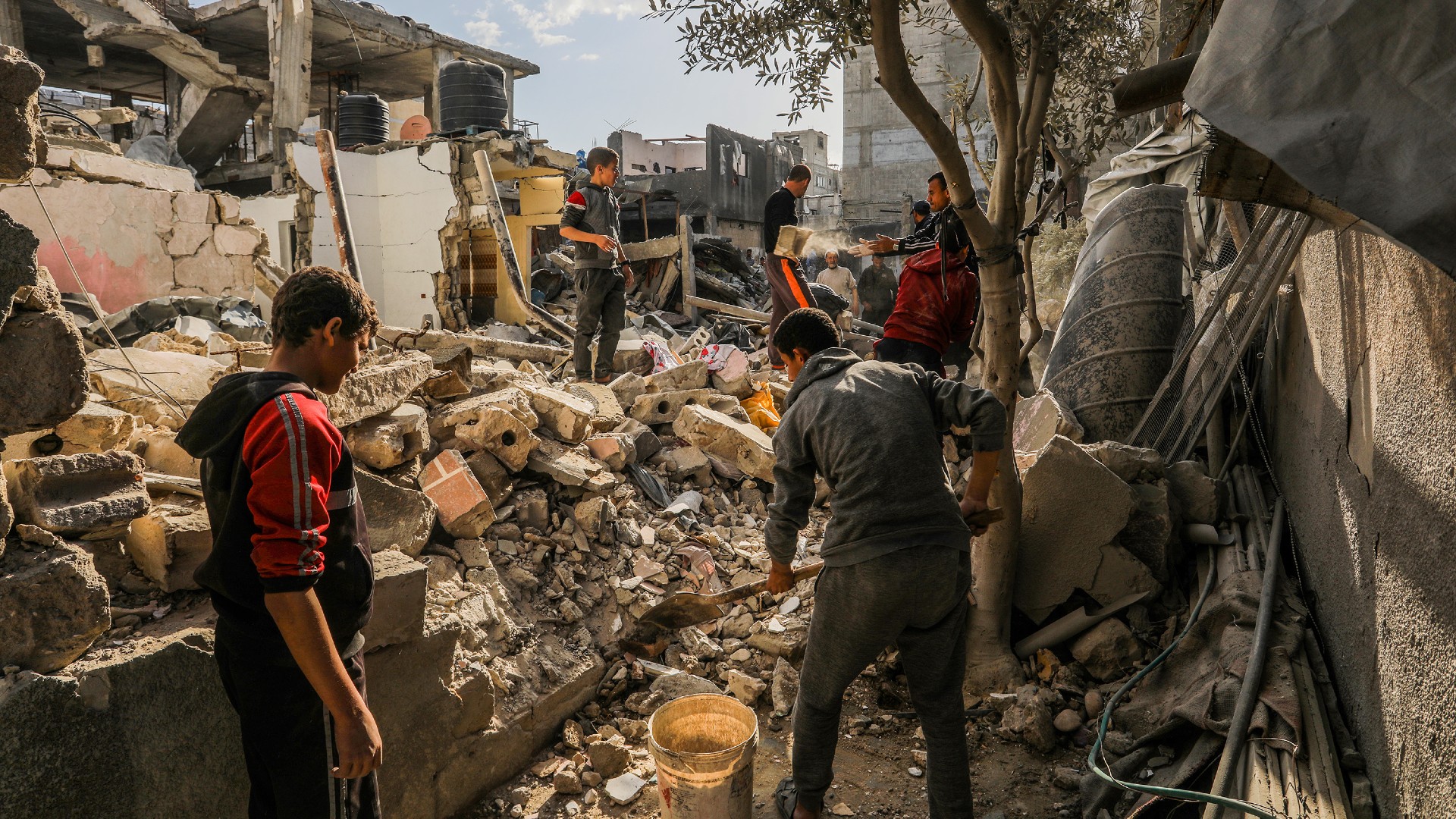Israel-Hamas: what do both sides need in order to agree a sustainable ceasefire?
Israel and Hamas 'open' to renewed ceasefire and hostage release, as pressure mounts on Benjamin Netanyahu at home and abroad

A free daily email with the biggest news stories of the day – and the best features from TheWeek.com
You are now subscribed
Your newsletter sign-up was successful
The admission by Israel's army that it mistakenly shot and killed three of its own hostages has piled pressure on Benjamin Netanyahu to agree a lasting ceasefire in Gaza.
In recent days Israel has seen some of its most significant demonstrations since the outbreak of the war as calls grow at home for Prime Minister Netanyahu to secure the release of the remaining hostages held by Hamas.
At the same time, the 10-week bombardment of Gaza has sparked "increasing unease" among Israel's allies about its conduct of the war, the Financial Times said.
The Week
Escape your echo chamber. Get the facts behind the news, plus analysis from multiple perspectives.

Sign up for The Week's Free Newsletters
From our morning news briefing to a weekly Good News Newsletter, get the best of The Week delivered directly to your inbox.
From our morning news briefing to a weekly Good News Newsletter, get the best of The Week delivered directly to your inbox.
With pressure mounting at home and abroad, Reuters has reported Israel and Hamas are "both open to a renewed ceasefire and hostage release, although disagreements remain on how it would be implemented".
What the papers said
The problem for Israel, said Anshel Pfeffer in The Times, is that it "has struggled to reconcile its key objectives, to destroy Hamas's military and governing capabilities in Gaza and to rescue more than 240 hostages captured by the terrorist group". As the accidental killing of the three hostages by Israeli troops at the weekend proved, "doing both is proving to be extremely difficult".
At the same time it is also losing friends abroad. Last week, US President Joe Biden, Israel's most vocal and important ally, warned its "indiscriminate" bombing risked losing it international support.
The former UK defence secretary Ben Wallace warned in a strongly worded article in The Telegraph: "We are entering a dangerous period now where Israel's original legal authority of self-defence is being undermined by its own actions. It is making the mistake of losing its moral authority alongside its legal one."
A free daily email with the biggest news stories of the day – and the best features from TheWeek.com
The Biden administration is exerting "maximum pressure to convince the Israeli government that the downsides of its prosecution of the war, particularly the shockingly high Palestinian civilian death toll, now outweigh the potential gains". That's the view of Ian Parmeter, from the Centre for Arab and Islamic Studies at the Australian National University, on The Conversation.
Both Rishi Sunak and Keir Starmer have joined calls for a "sustainable ceasefire" in Gaza, said The Guardian, as "the political rhetoric continues to shift away from unqualified support for Israel's assault in line with moves from the US and others".
In a joint article in The Sunday Times, the foreign secretaries of the UK and Germany, David Cameron and Annalena Baerbock, set out a three-step process to "pave the way to a sustainable ceasefire, leading to a sustainable peace".
First, they said the Israeli government "should do more to discriminate sufficiently between terrorists and civilians". Second, more aid needed to be delivered to ordinary Palestinians. And third, Israel needed to clamp down on extremist settlers in the West Bank, after nearly 300 Palestinians have been killed in the occupied territory and many more forced from their homes in Israeli raids and settler violence since 7 October.
What next?
"Hopes for peace were raised" on Saturday when Reuters reported that Israel's spy chief had spoken with Qatar's prime minister, who was instrumental in negotiating an earlier week-long ceasefire and hostage release.
Sources told the news agency that Hamas is "insisting on setting the list of hostages to be released unilaterally, and demanding that Israeli forces withdraw behind pre-determined lines".
The group continues to make demands that Israel "would find hard to accept", said Parmeter, including "no further hostage releases until the war ends; and insistence that a deal would involve release of large numbers of Palestinian prisoners, including high-profile militants". There is concern Hamas will be further emboldened by polling that showed is support has risen substantially in Gaza since the war began.
For its part, Israel has insisted it will not withdraw until it has destroyed the Hamas leadership but Israeli defence officials have "privately admitted in recent days that the IDF [Israeli Defense Forces] is already planning to change its strategy and in a few weeks adopt more mobile tactics, with fewer personnel on the ground in Gaza", Pfeffer reported in The Times. They hope that will "assuage Israel's allies and make it easier to negotiate a new hostage agreement with Hamas, or launch more effective rescue operations".
Goodwill and, crucially, time are running out for Israel to achieve its military objectives before the clamour for a ceasefire becomes too hard to ignore.
Elliott Goat is a freelance writer at The Week Digital. A winner of The Independent's Wyn Harness Award, he has been a journalist for over a decade with a focus on human rights, disinformation and elections. He is co-founder and director of Brussels-based investigative NGO Unhack Democracy, which works to support electoral integrity across Europe. A Winston Churchill Memorial Trust Fellow focusing on unions and the Future of Work, Elliott is a founding member of the RSA's Good Work Guild and a contributor to the International State Crime Initiative, an interdisciplinary forum for research, reportage and training on state violence and corruption.
-
 The Gallivant: style and charm steps from Camber Sands
The Gallivant: style and charm steps from Camber SandsThe Week Recommends Nestled behind the dunes, this luxury hotel is a great place to hunker down and get cosy
-
 The President’s Cake: ‘sweet tragedy’ about a little girl on a baking mission in Iraq
The President’s Cake: ‘sweet tragedy’ about a little girl on a baking mission in IraqThe Week Recommends Charming debut from Hasan Hadi is filled with ‘vivid characters’
-
 Kia EV4: a ‘terrifically comfy’ electric car
Kia EV4: a ‘terrifically comfy’ electric carThe Week Recommends The family-friendly vehicle has ‘plush seats’ and generous space
-
 How long can Nato keep Donald Trump happy?
How long can Nato keep Donald Trump happy?Today's Big Question Military alliance pulls out all the stops to woo US president on his peacemaker victory lap
-
 How far would Russia go for Iran?
How far would Russia go for Iran?Today's Big Question US air strikes represent an 'embarrassment, provocation and opportunity' all rolled into one for Vladimir Putin
-
 How the Israel-Iran conflict broke out
How the Israel-Iran conflict broke outThe Explainer Israel's strike on Iran's nuclear and missile programmes was years in the planning
-
 Will the UK get involved in the Israel-Iran conflict?
Will the UK get involved in the Israel-Iran conflict?Today's Big Question Keir Starmer is 'walking a tightrope' in helping Israel limit Tehran's nuclear capabilities without being seen to do so
-
 What happens if Israel attacks Iran?
What happens if Israel attacks Iran?TODAY'S BIG QUESTION Israel is 'ready to strike' and Tehran has plans for counterattacks against the US as nuclear talks appear deadlocked
-
 Is Israel finally feeling the heat on Gaza?
Is Israel finally feeling the heat on Gaza?Today's Big Question Benjamin Netanyahu allows aid to resume amid mounting international pressure and growing internal turmoil
-
 Israeli air strikes in Gaza: why has ceasefire collapsed?
Israeli air strikes in Gaza: why has ceasefire collapsed?Today's Big Question Start of 'broader and more sustained military operation' denounced by domestic groups representing hostage families
-
 Is Gaza ceasefire deal about to fizzle out?
Is Gaza ceasefire deal about to fizzle out?Today's Big Question Israel and Hamas accuse each other of deliberately breaking first phase of the fragile truce, which is set to expire on Saturday